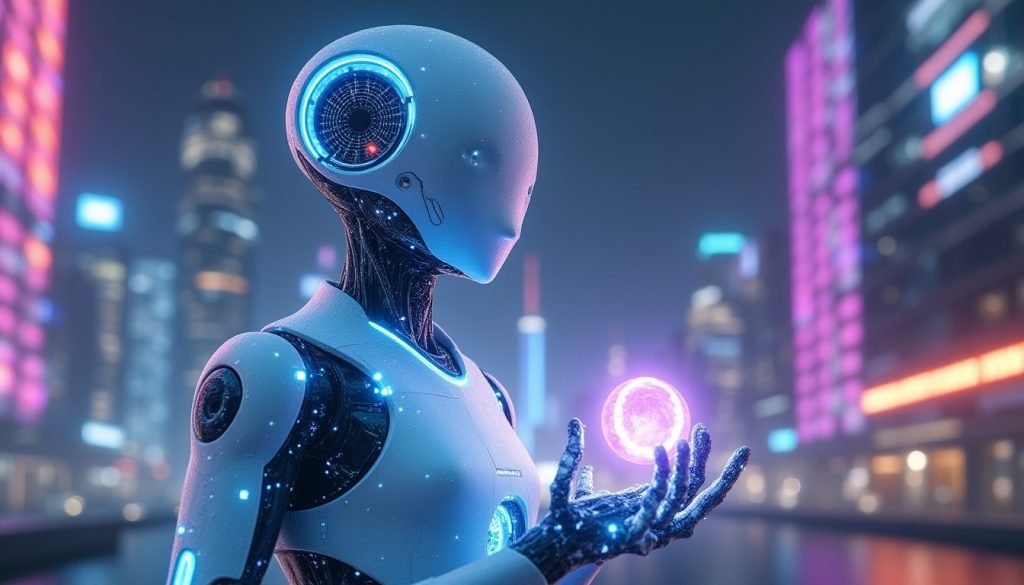The concept of artificial intelligence (AI) is no longer a fantasy. It is shaping our world today. Whether it is the way we work, the way we shop, travel, or where we receive our healthcare, AI is starting to have an impact on how things change. Businesses are now asking: How can we use AI not only to stay ahead but also to lead innovation?
We are living in a time where AI is leading a new era of innovation, most of opportunities that were impossible just a decade ago.
AI as the Engine of Innovation
AI is like the engine of a powerful machine. It reads information, draws conclusions, and can then generate solutions quicker and smarter than people could ever do. AI is the key part of modern innovation, whether being used to automate daily processes,
Transforming Businesses with AI
The change of AI in the growth of the business is one of the biggest effects. Companies have currently incorporated the use of AI to:
- Understand customer behavior through data analysis
- Offer personalized services and recommendations.
- Predict market trends
- Improve supply chains and operations.s
This transformation enables businesses to reduce costs, enhance efficiency, and deliver greater value to their customers.
AI in Healthcare Innovation
Artificial intelligence is an essential aspect of the field of healthcare. It assists physicians in early identification of a disease, makes individualised treatment plans, and even assists in faster drug development. For patients, this means high-quality care and effective treatment. For doctors, AI becomes a partner that improves accuracy and decision-making.
AI in Education
Universities and schools are beginning to use AI-powered applications to simplify learning. Learning management systems adapt the lessons to the needs of each student. Education is more interactive and available because tutors and chatbots are readily available to offer instant help.
AI in Everyday Life
Even outside of work and school, AI is involved in our everyday lives. You can find AIs in virtual personal assistants such as Siri and Alexa, smart household devices, online shopping suggestions, and even traffic apps. People already interact with AI daily without realizing it.
Breaking Barriers with AI Innovation
It is not just improving what already exists; rather, it is opening up completely new possibilities. Whether it is self-driving cars, voice recognition, or smart robotics, AI is advancing the boundaries of technology. Such discoveries are creating new industries and employment that had never been in existence before.
Challenges in the New Era of AI
Of course, with opportunity also comes challenge. AI raises concerns about:
- Job replacements in some industries
- Data privacy and security
- Ethical use of technology
Businesses and governments must responsibly use AI and ensure rules and systems protect people while supporting innovation.
The Future of AI-Led Innovation
The future of AI is full of possibilities. People believe AI will soon advance in terms of creativity, including art, music, and design. All businesses will rely more on AI to make decisions, and other industries such as space exploration, renewable energy, and biotechnology will achieve breakthroughs powered by AI.
This also implies that we are only at the beginning of the new AI-driven era of innovation.
FAQs
1. What does it mean to lead innovation with AI?
It involves using artificial intelligence to develop more intelligent, efficient, and quick solutions across different fields.
2. How is AI used in business growth?
Businesses can better understand their customers, forecast trends, enhance operations, and provide customized offerings with the help of AI.
3. Which industries are most impacted by AI?
AI is changing a variety of industries, including healthcare, education, retail, finance, and transportation.
4. What are the risks of AI innovation?
Job automation, data privacy issues, and ethical problems are the major risks.
5. Is AI the future of innovation?
Experts predict that AI will drive technological innovations and probably creativity in the future.
Conclusion
Artificial Intelligence is not one of the technological trends, it is the heart of a new era of progress. In healthcare and education, besides businesses and daily life, AI is opening doors that were once locked. As more companies and people learn to invest in AI, the possibilities of development and innovation will simply increase. The organisations that embrace and forge ahead with AI today will define tomorrow.
It’s time to investigate how AI can assist you in leading in this exciting new era if your company or career is struggling to find a path forward.
